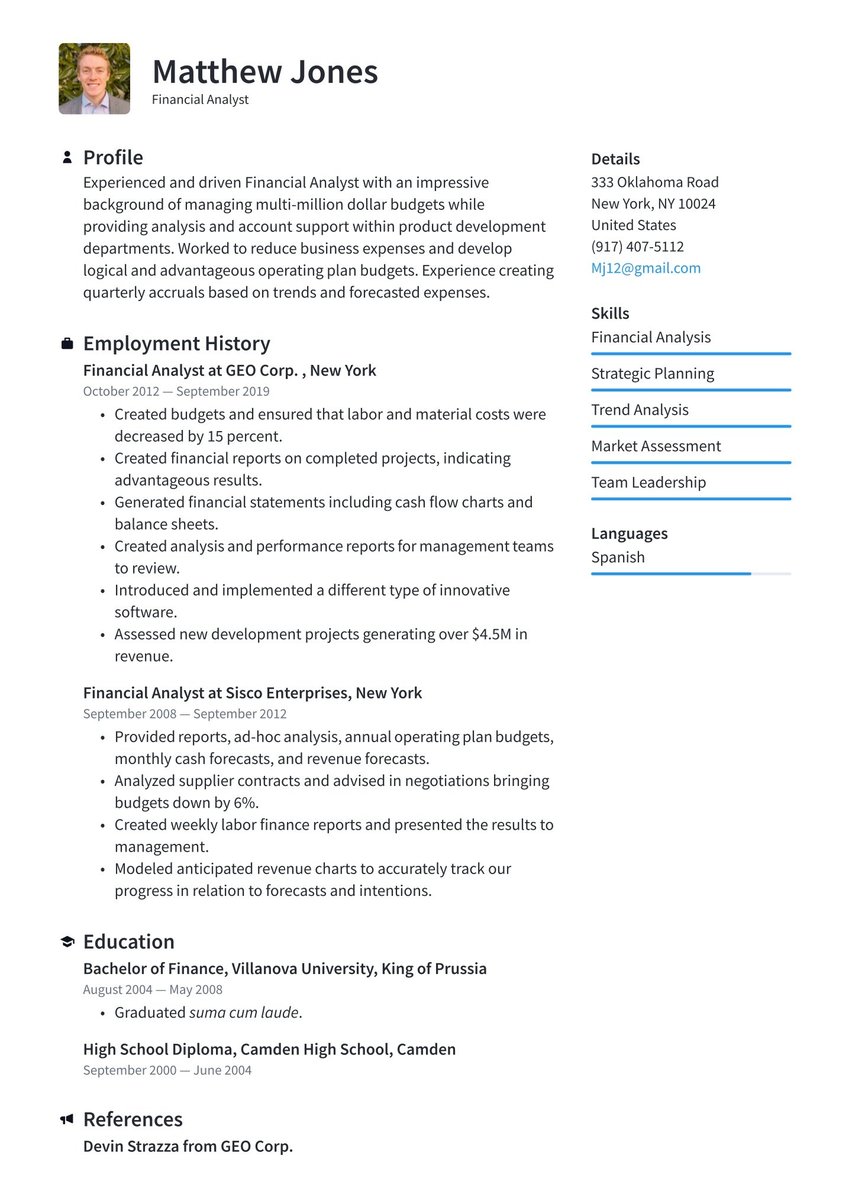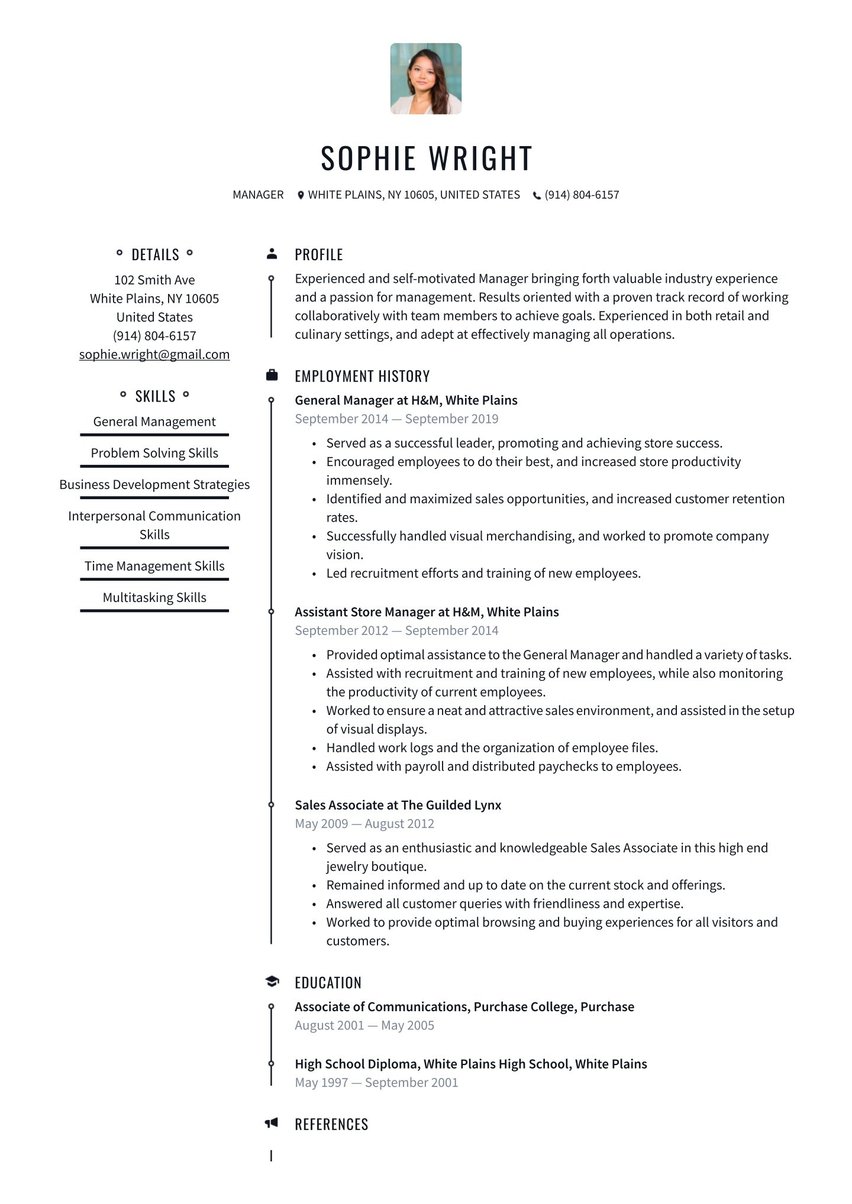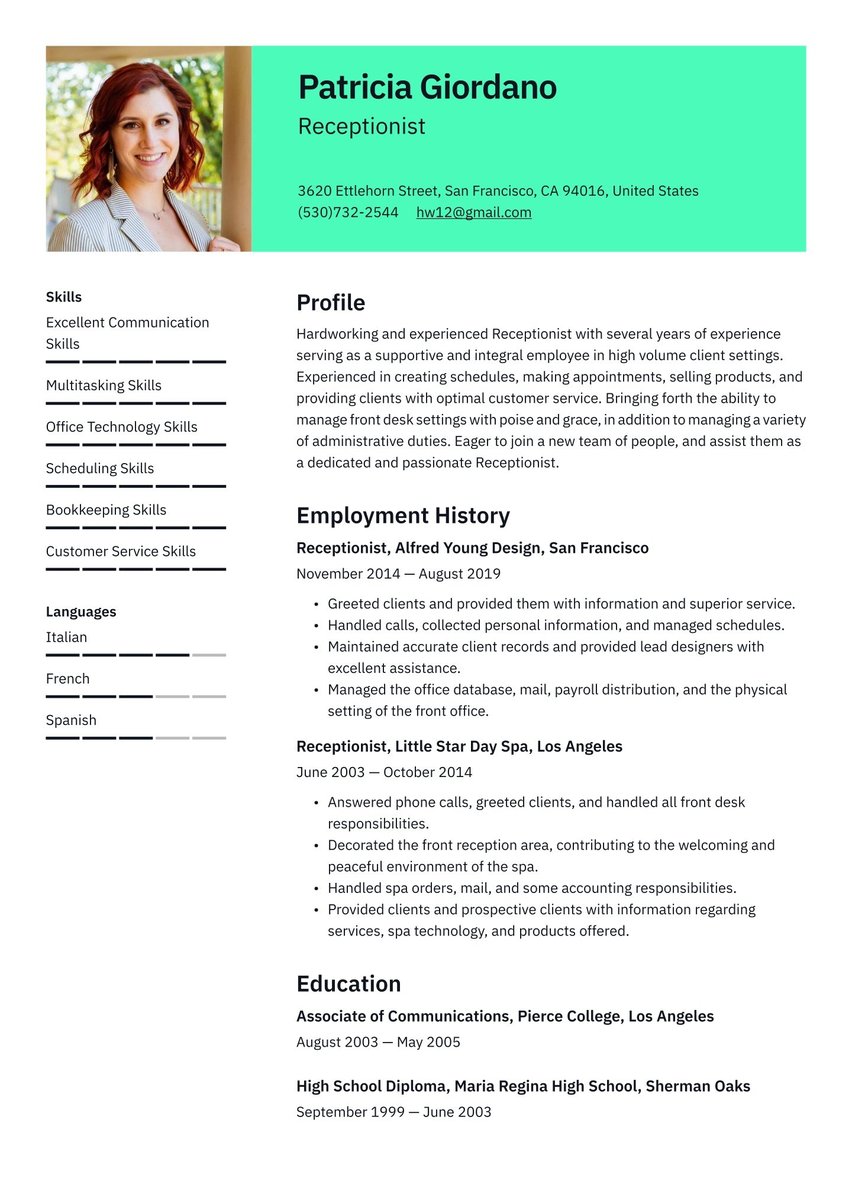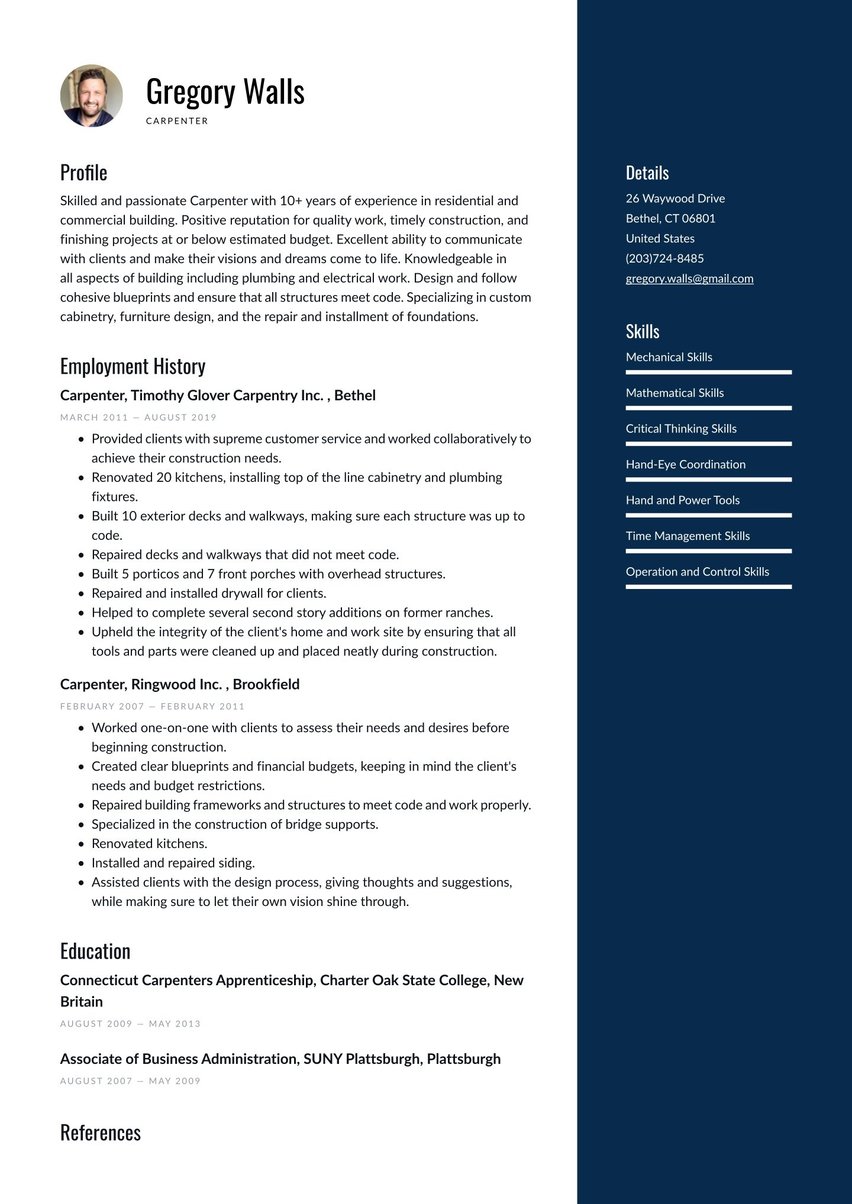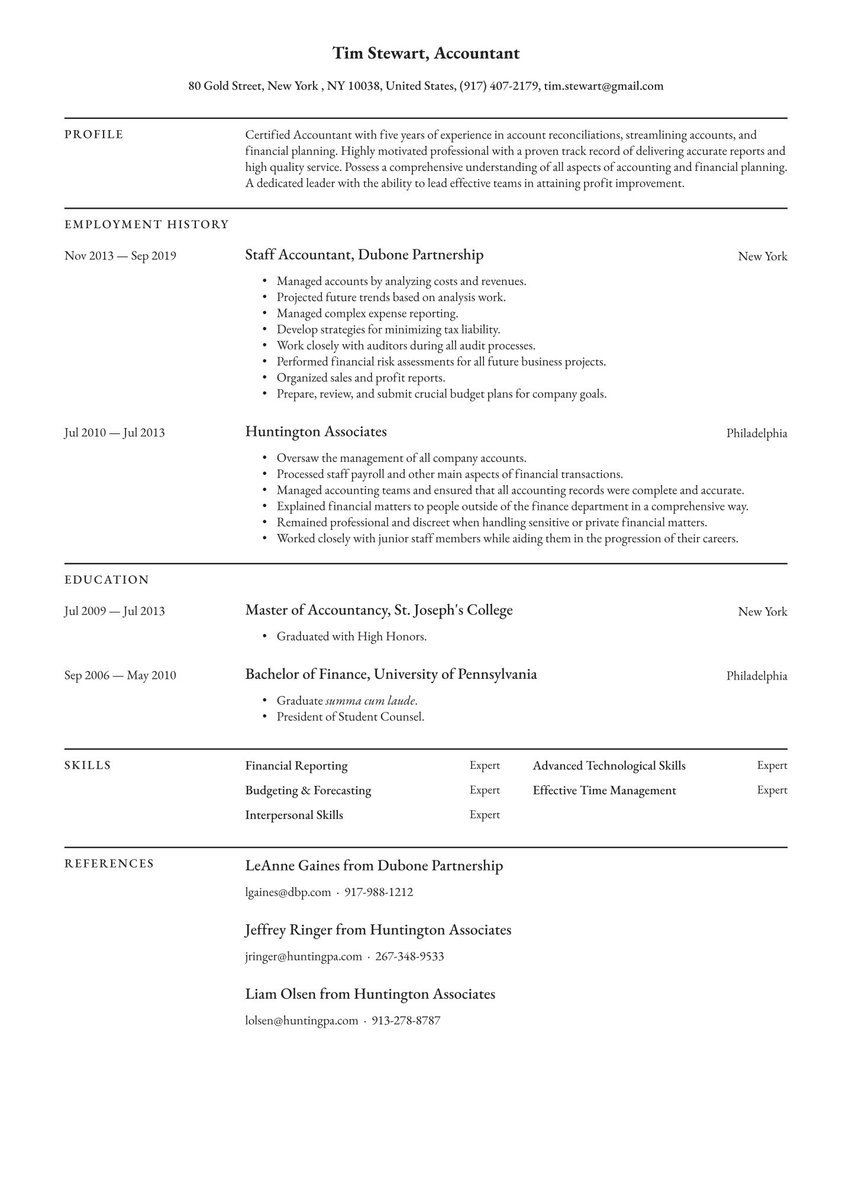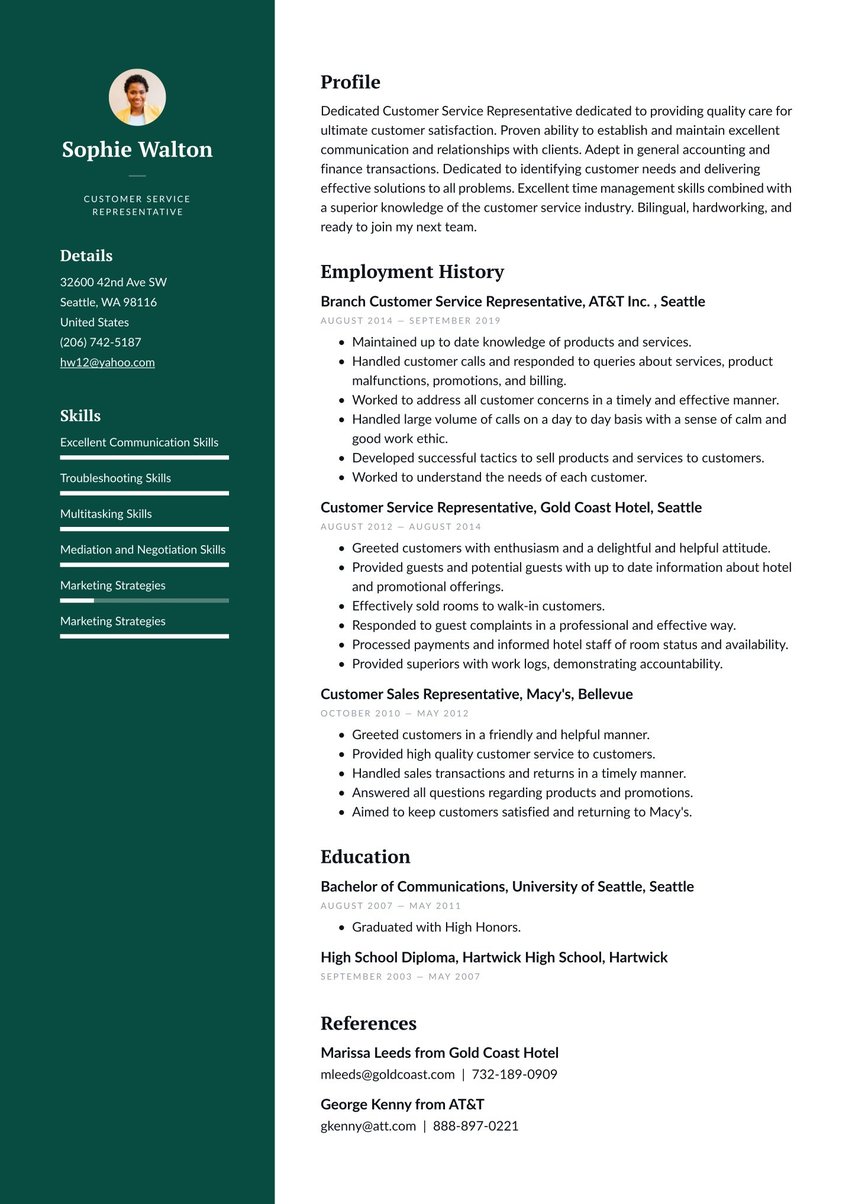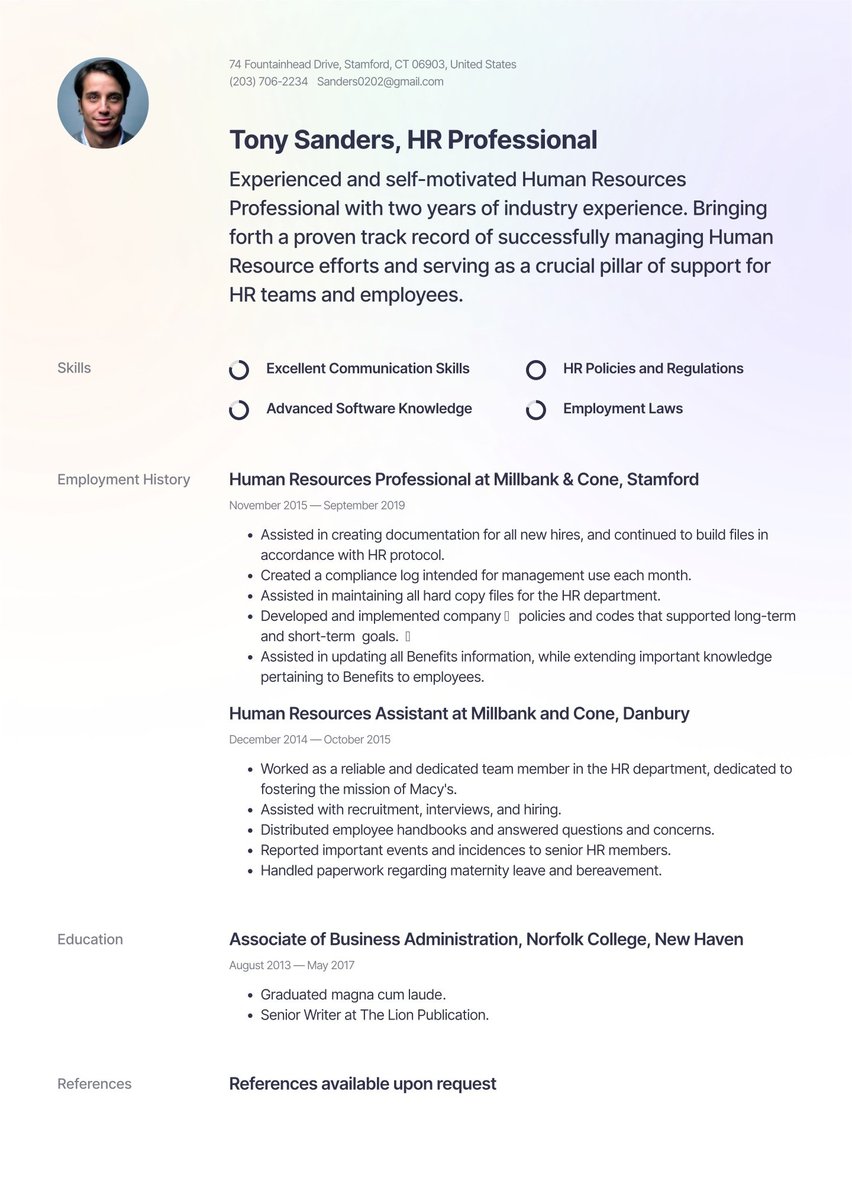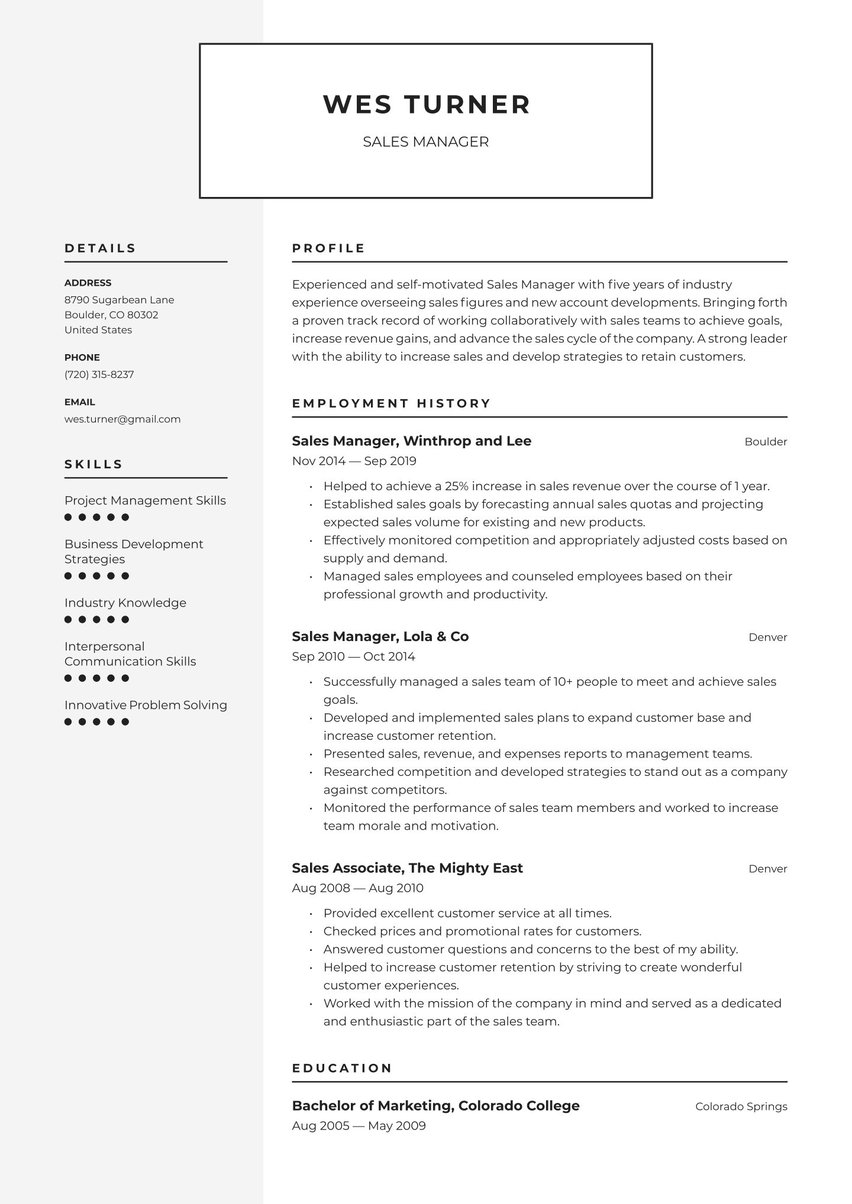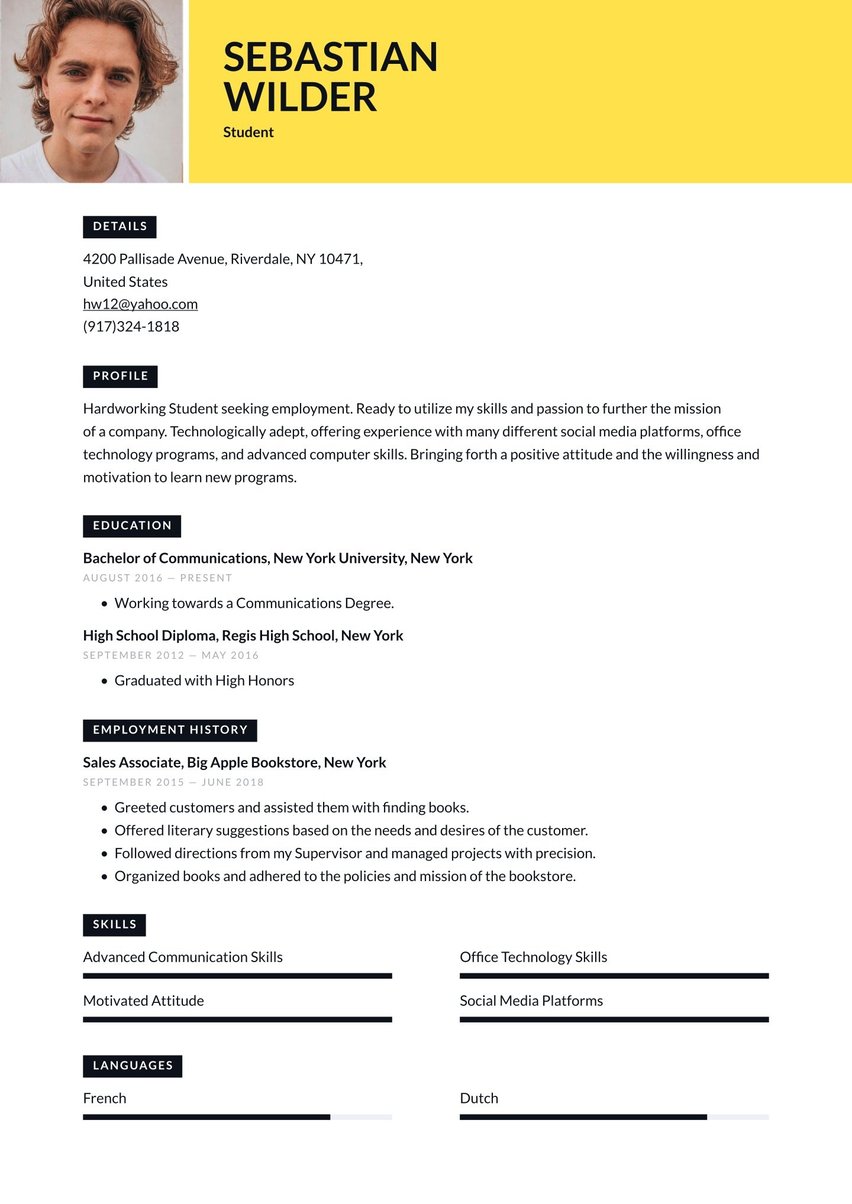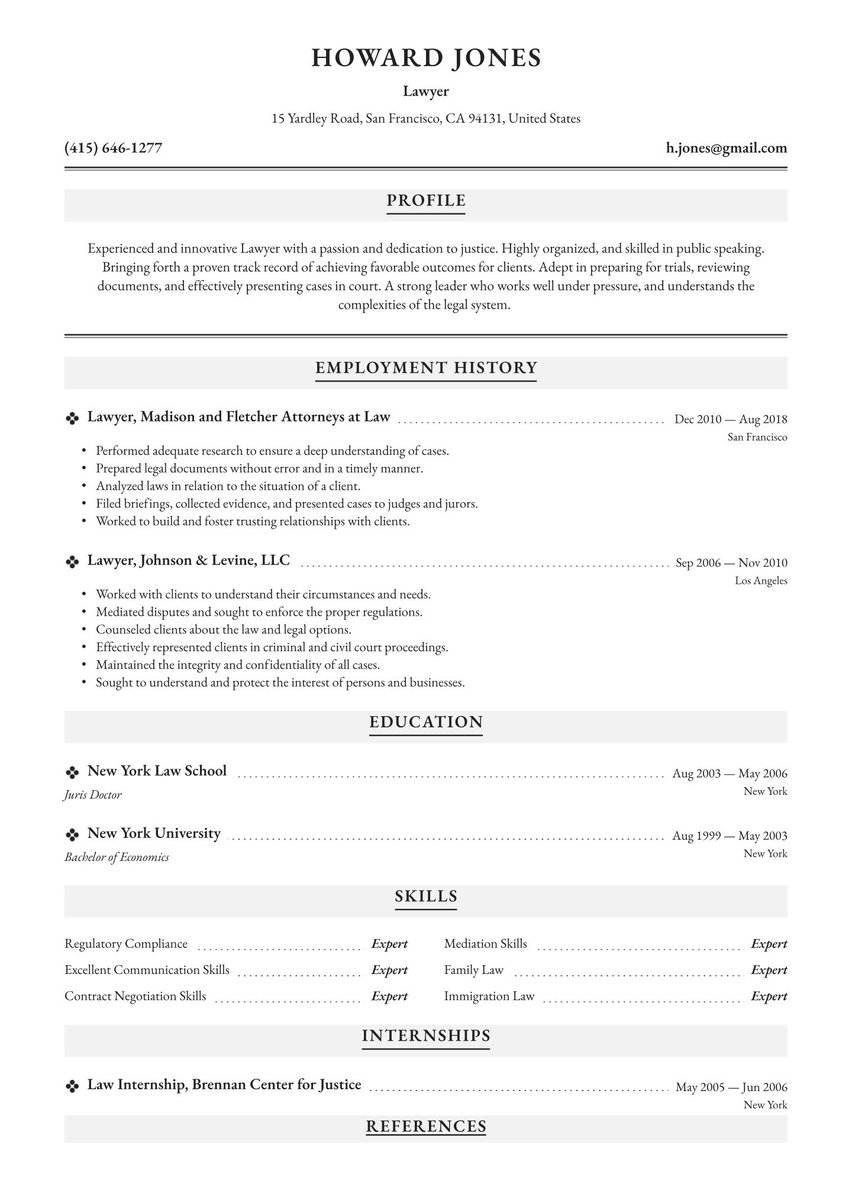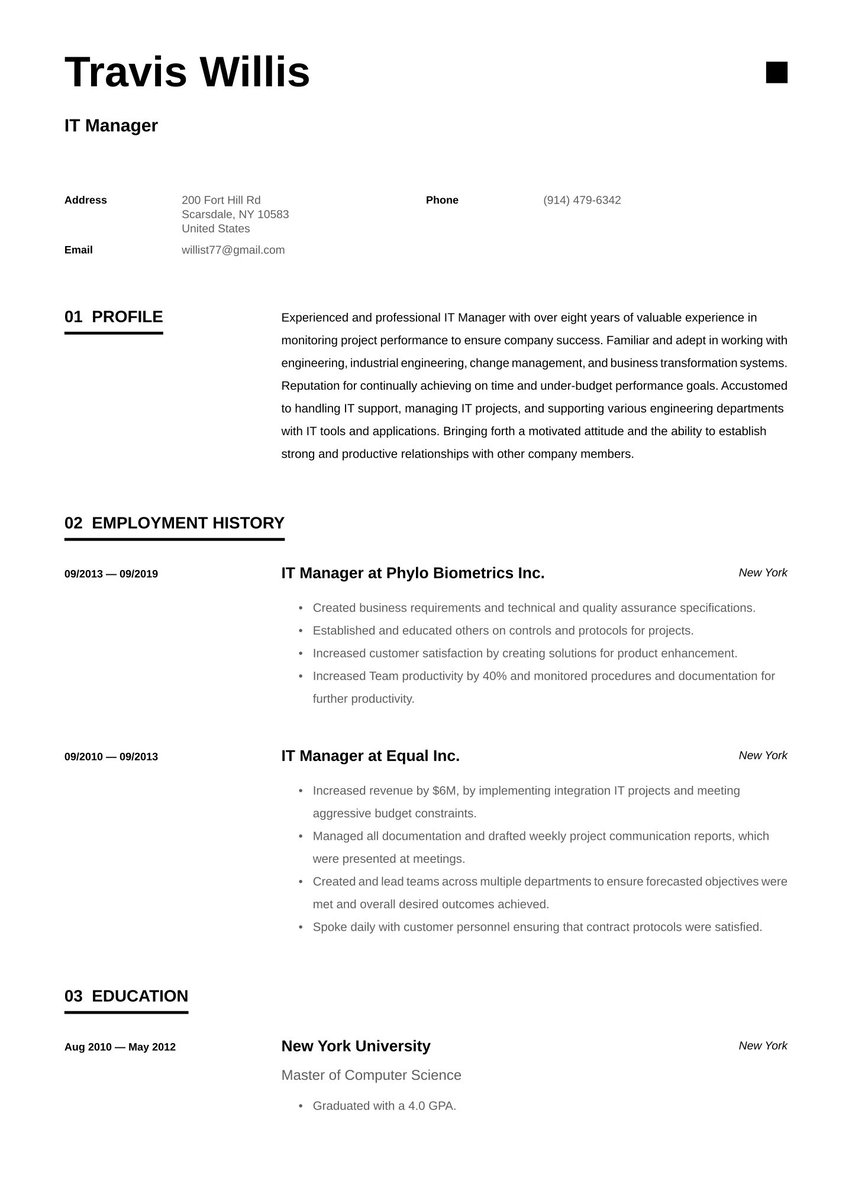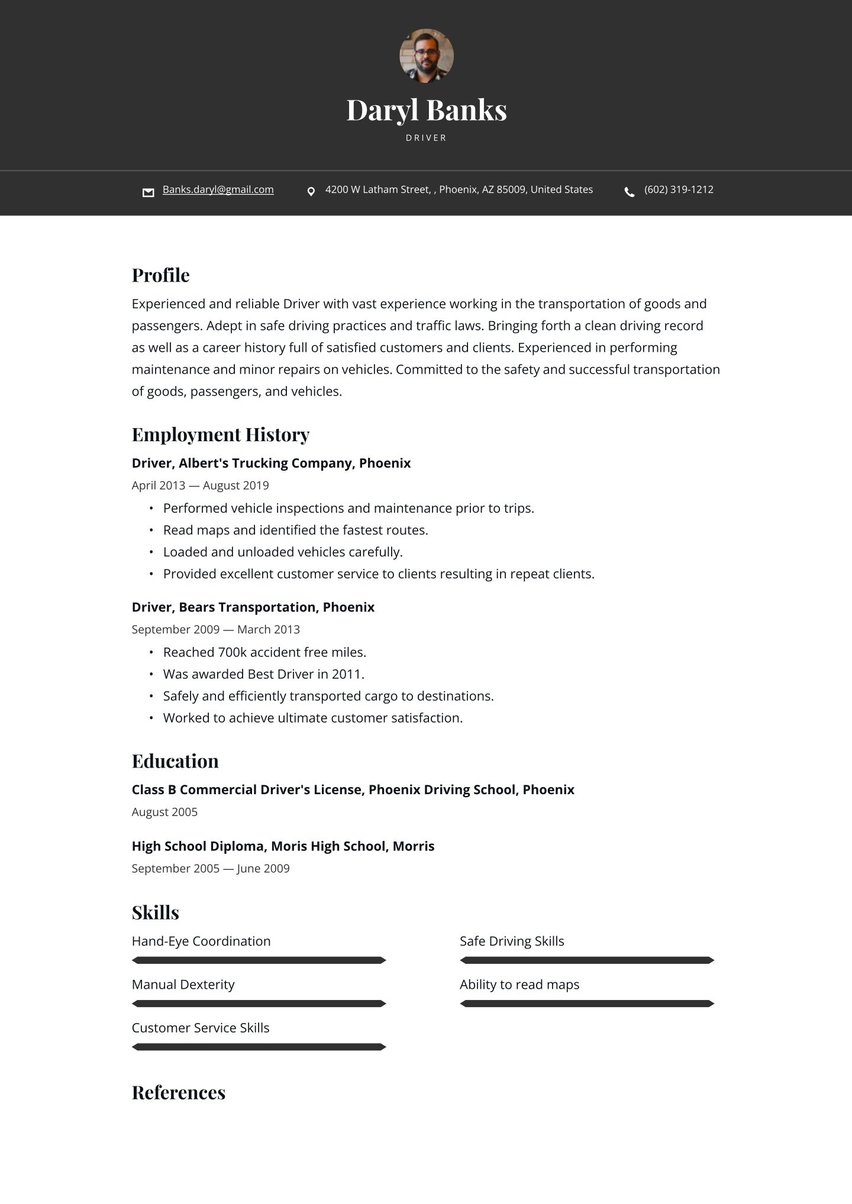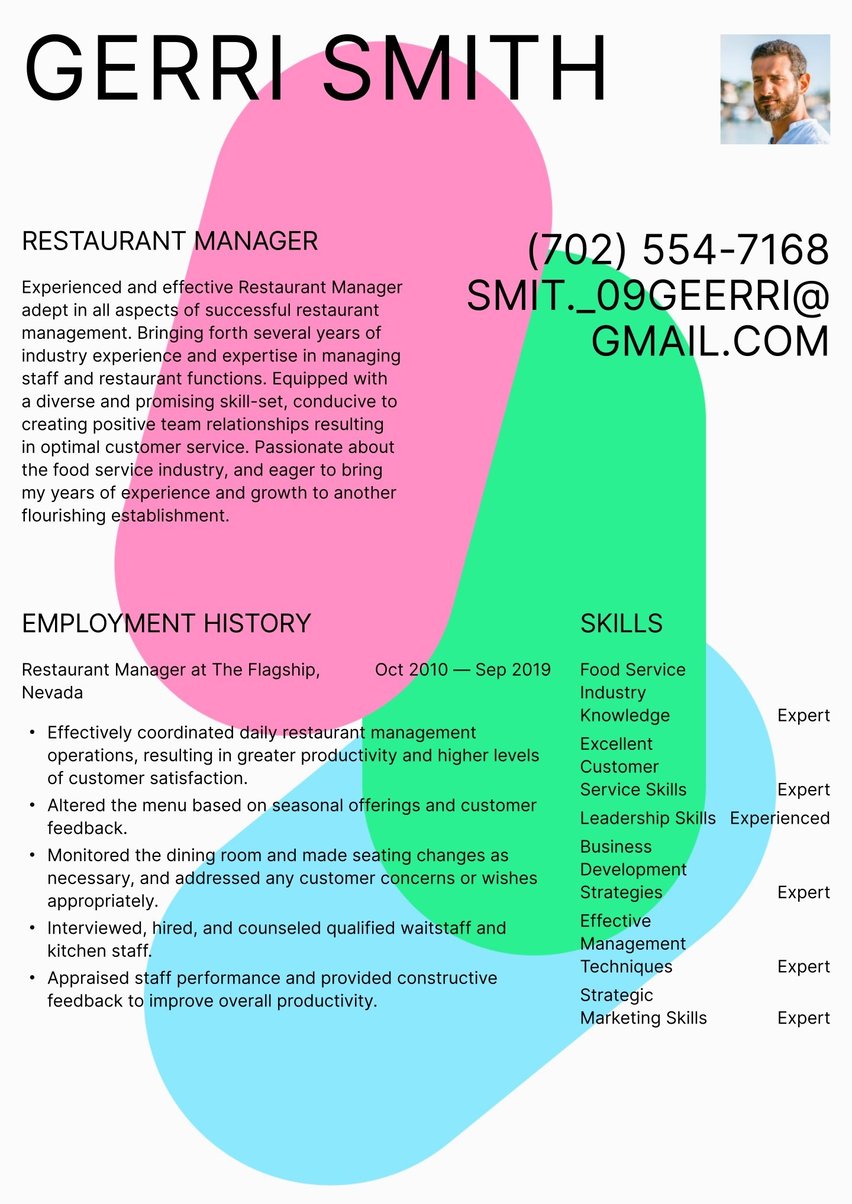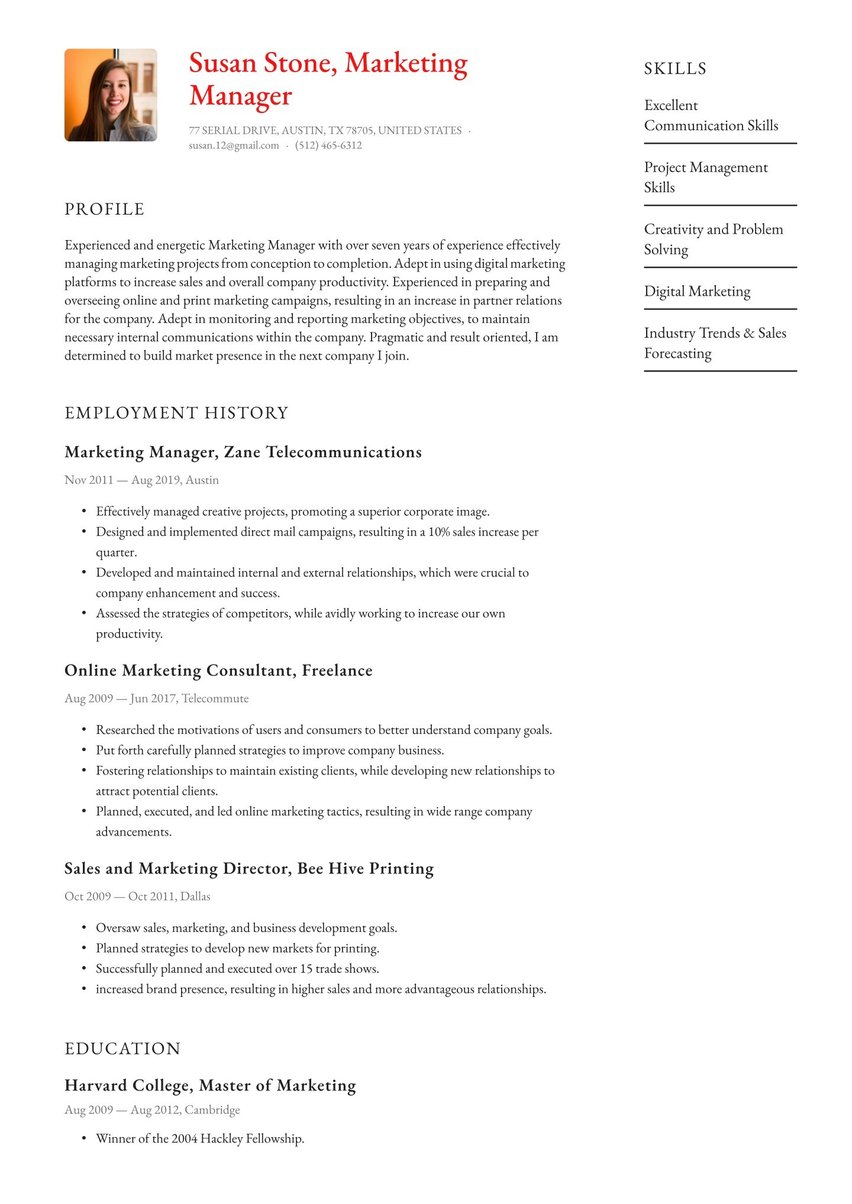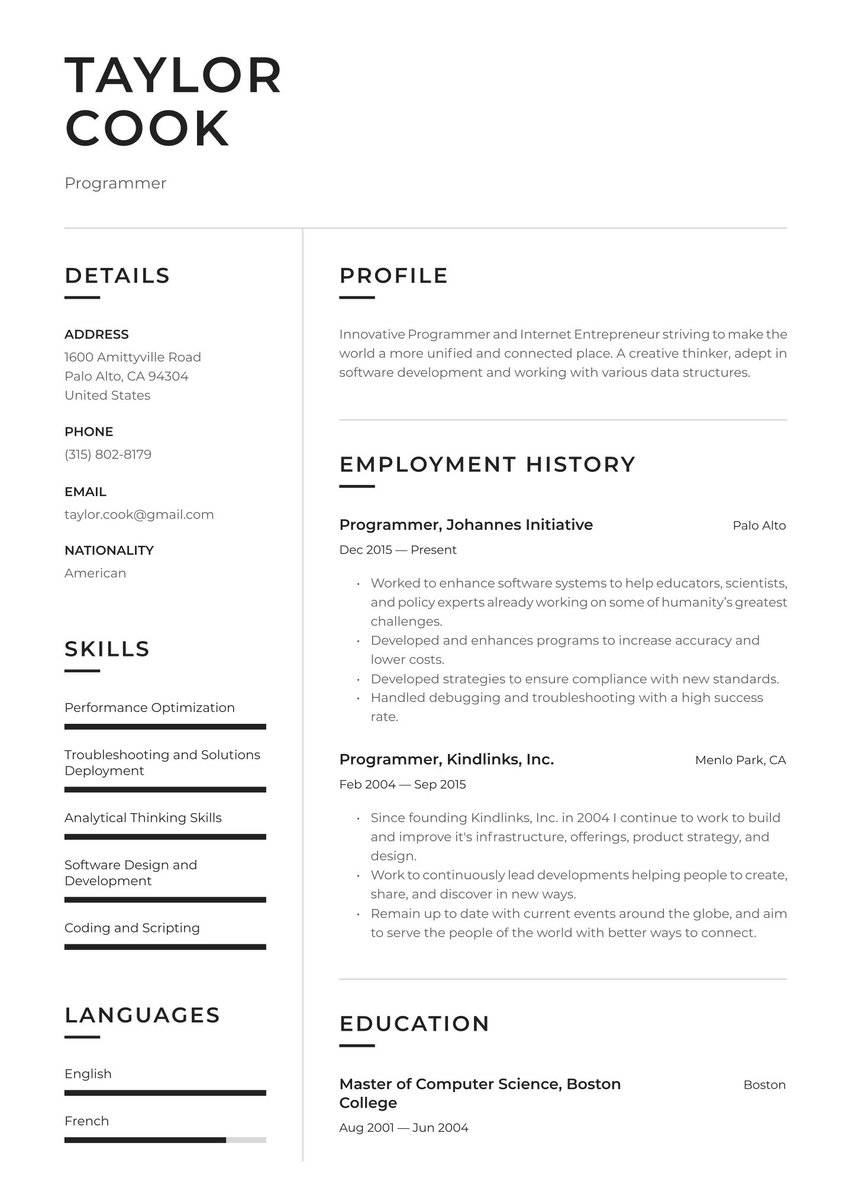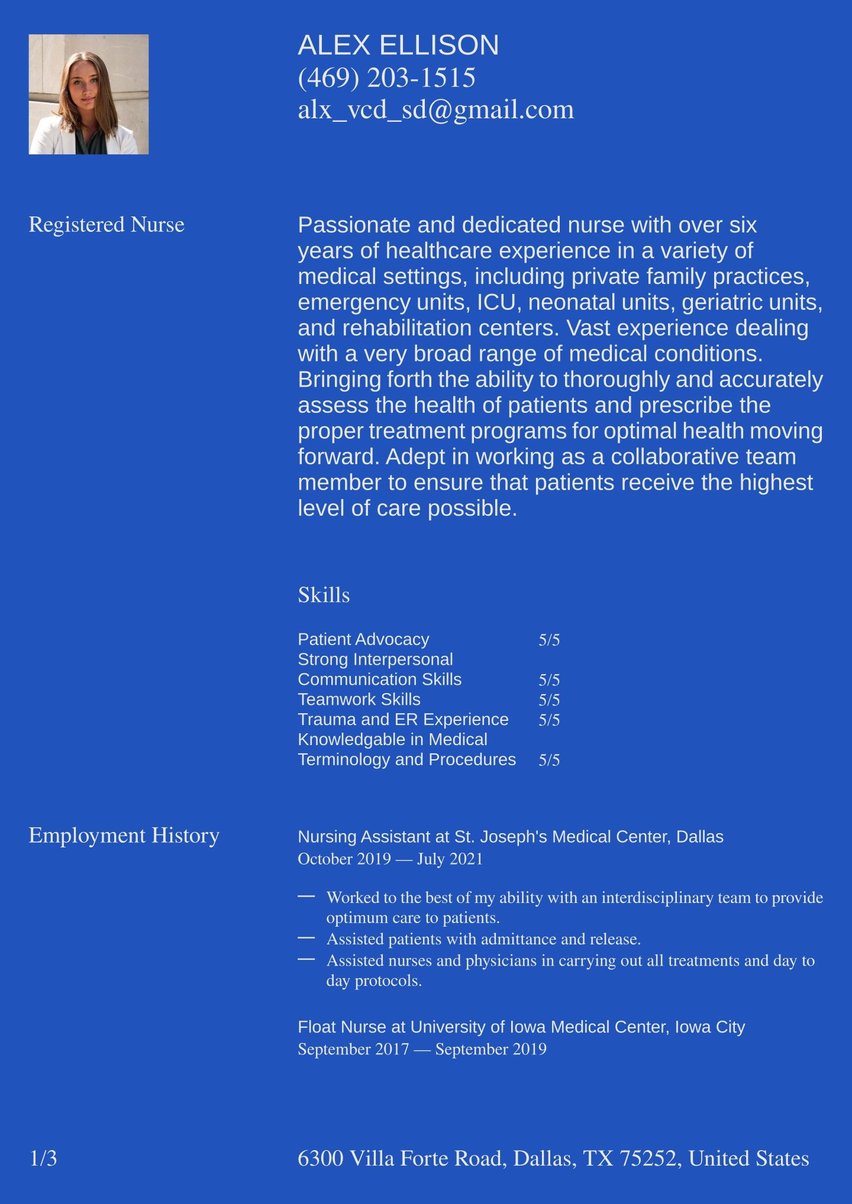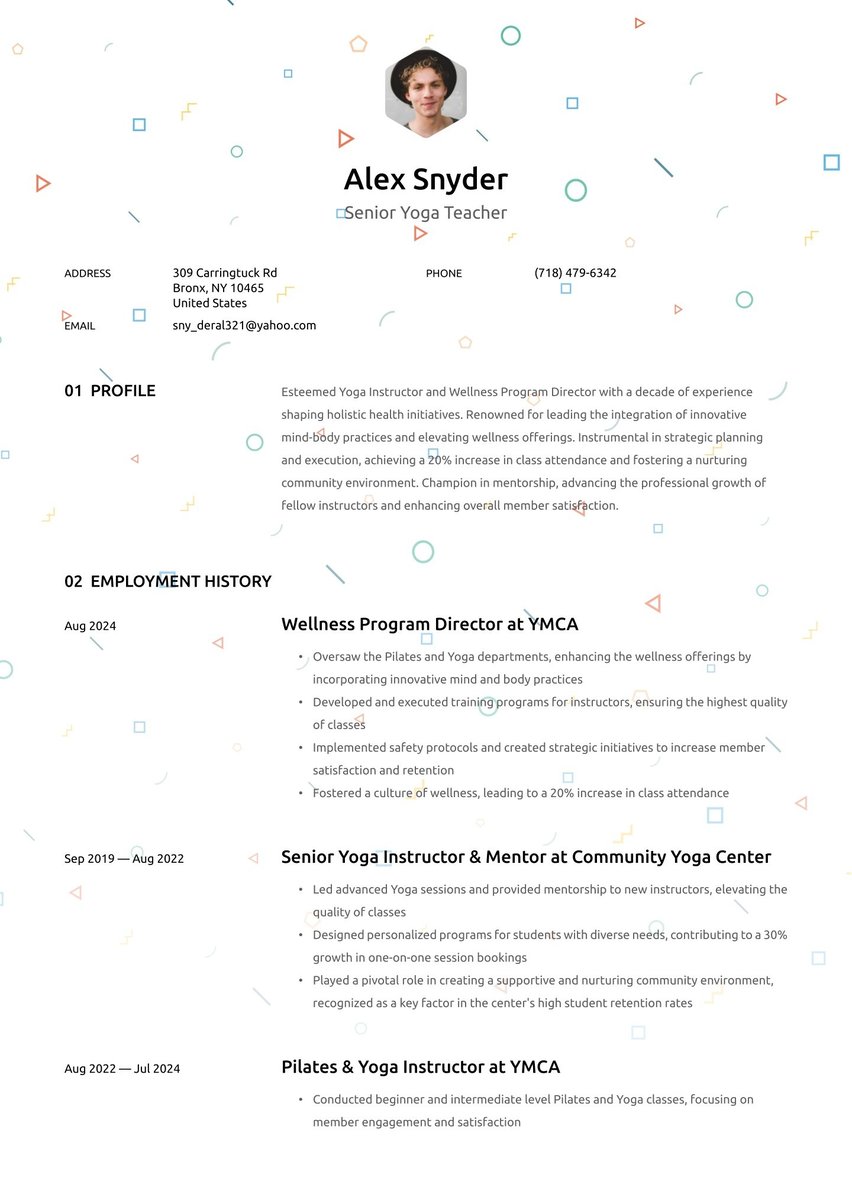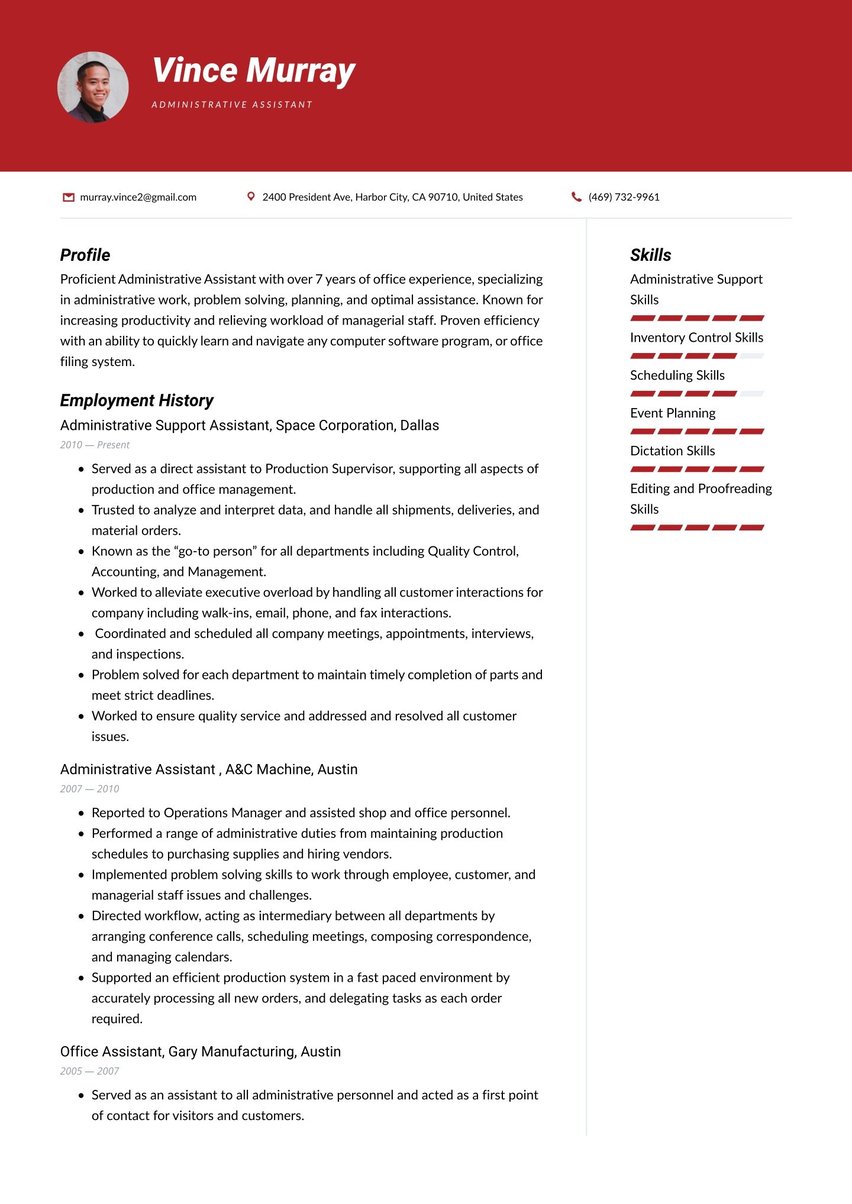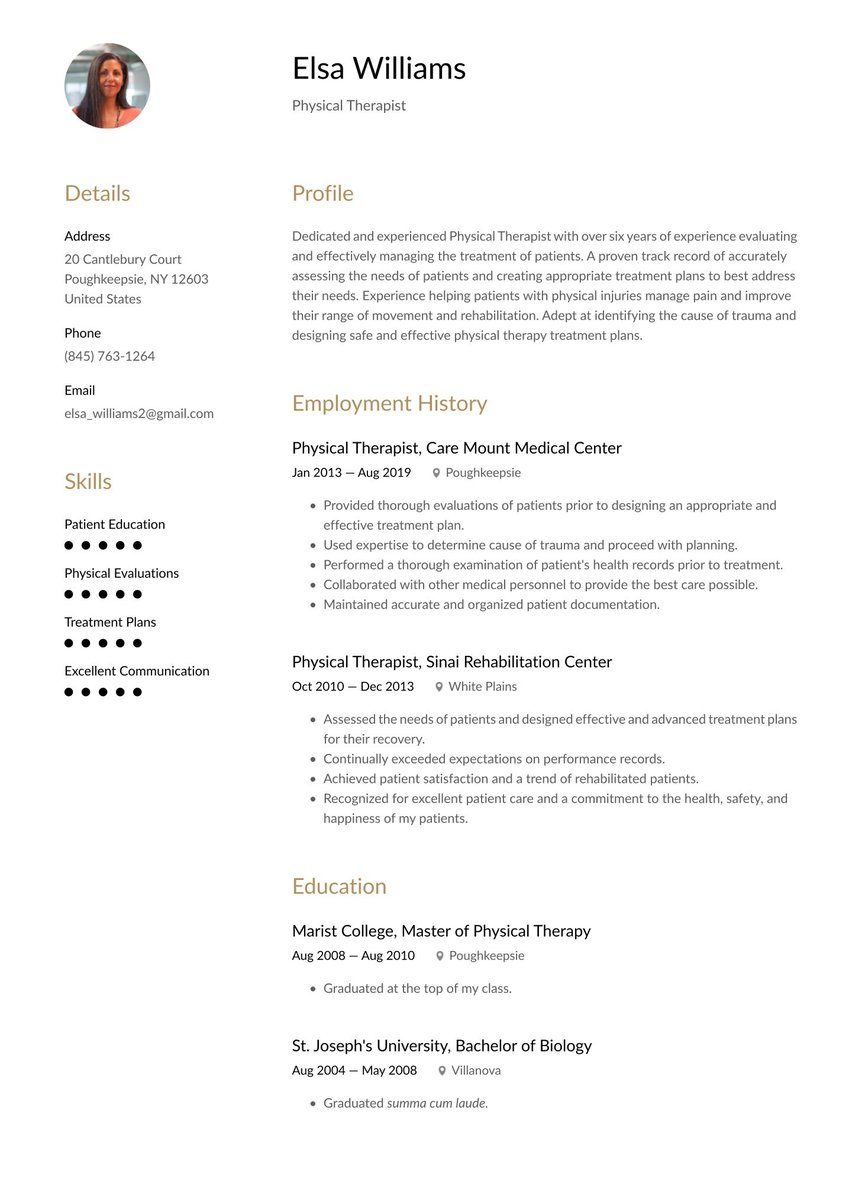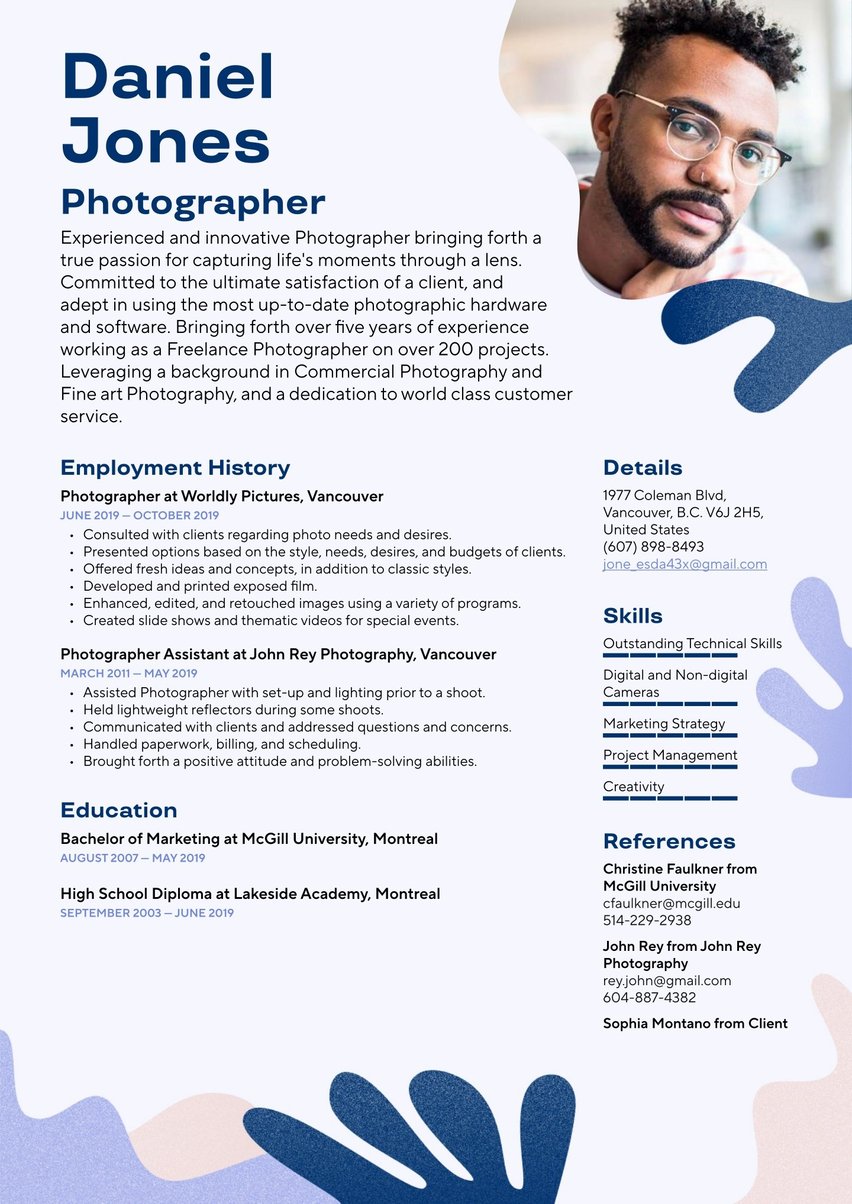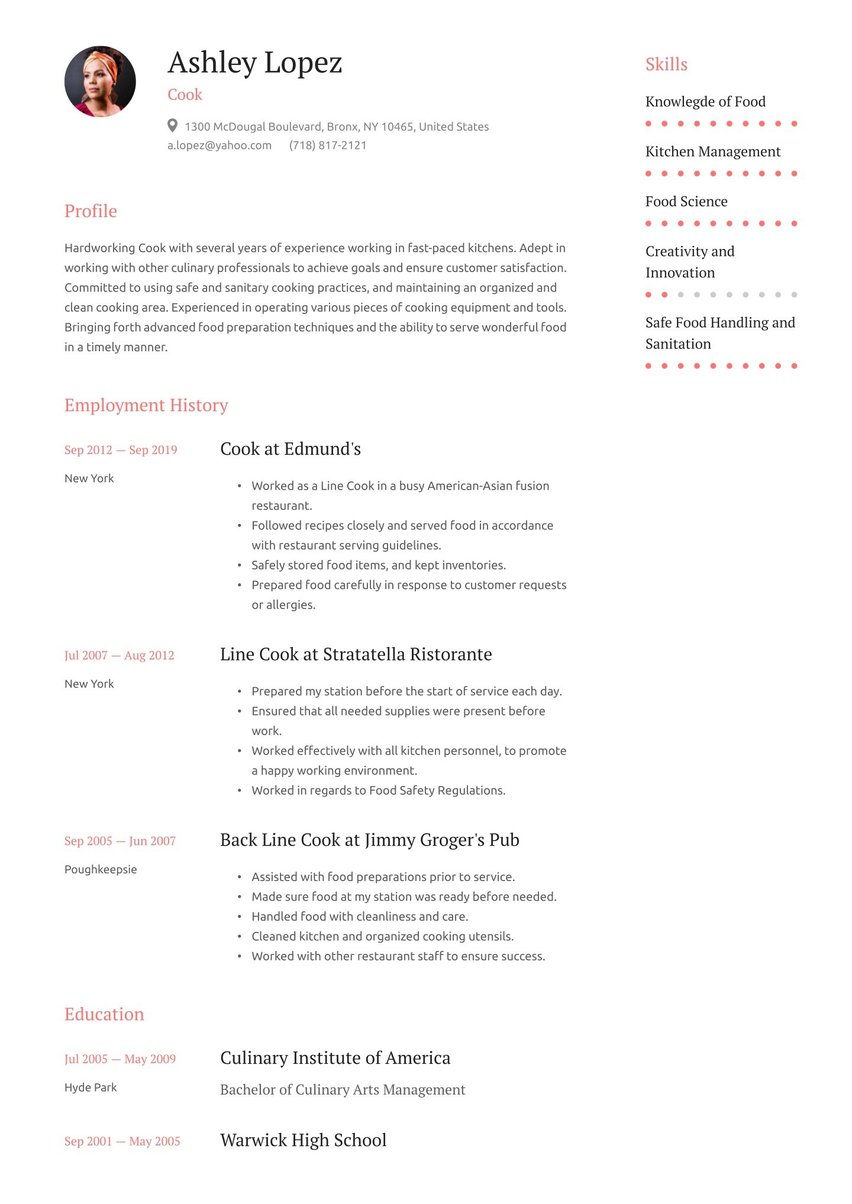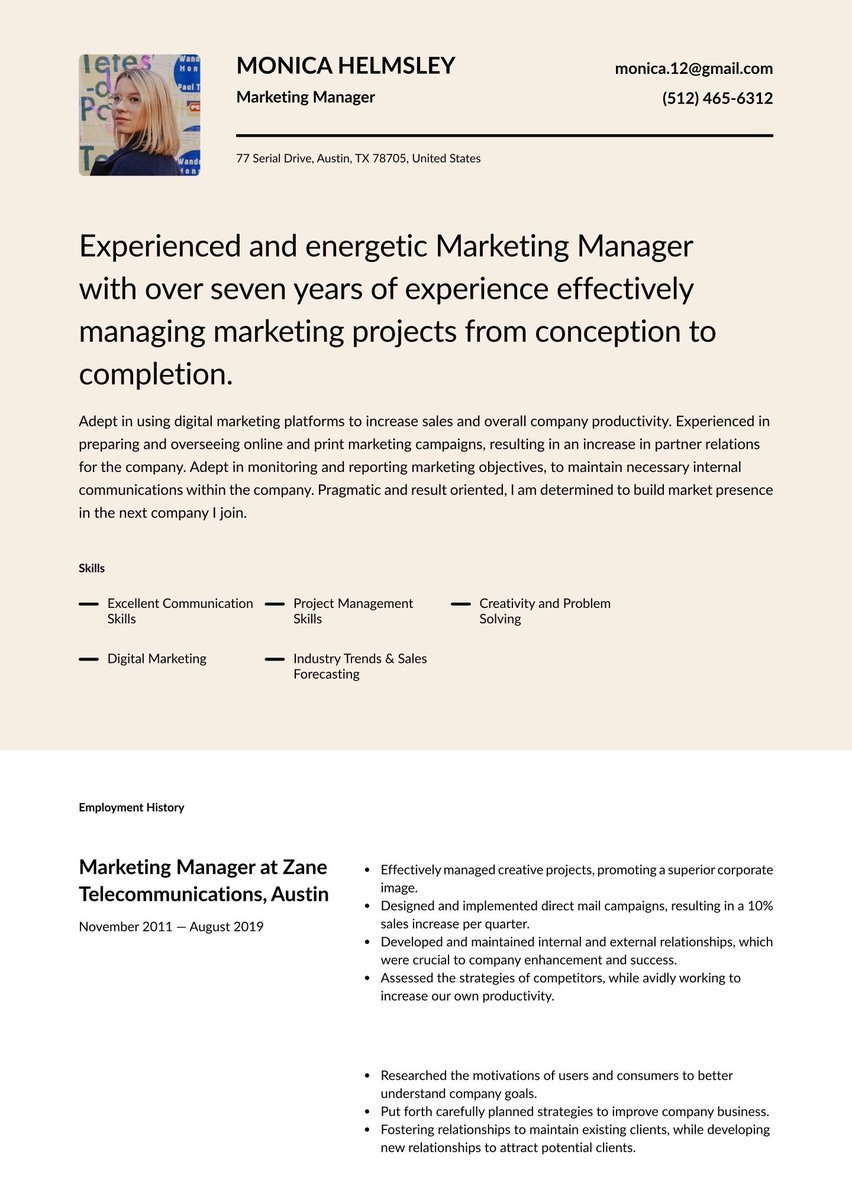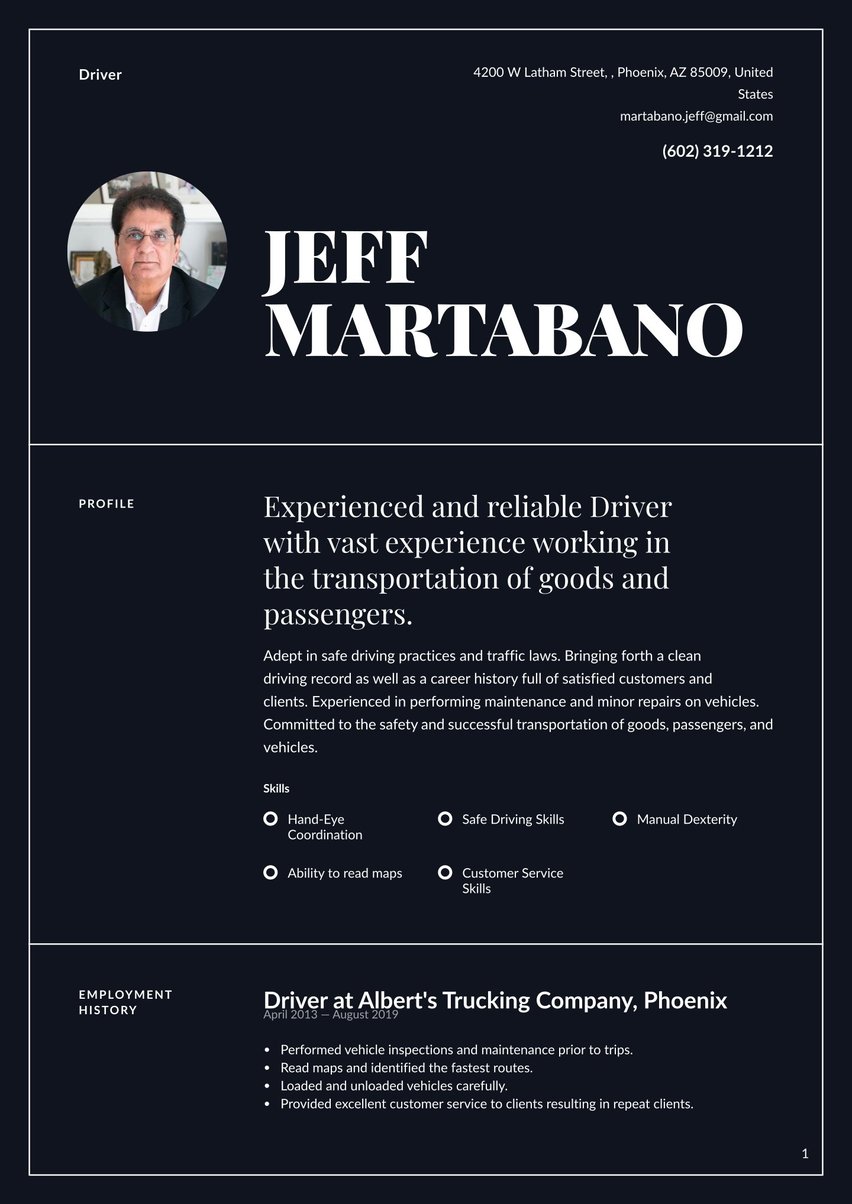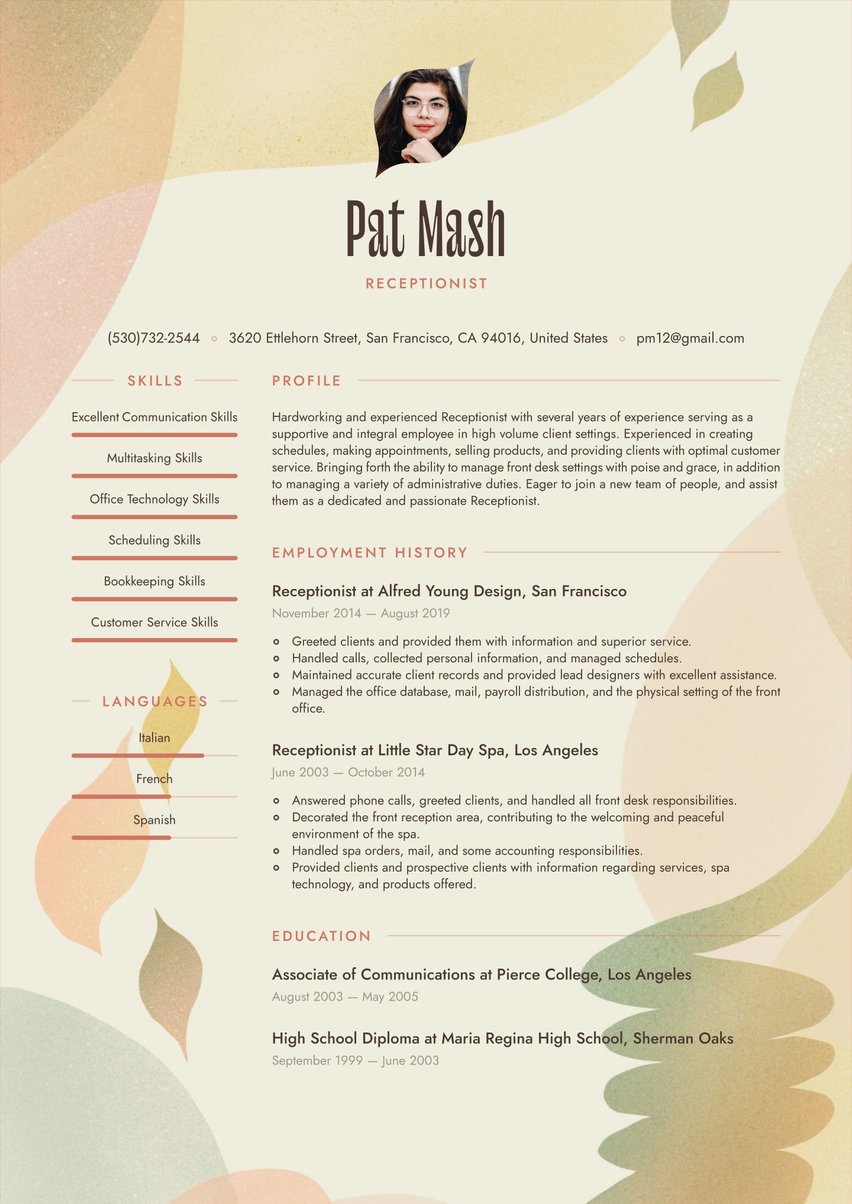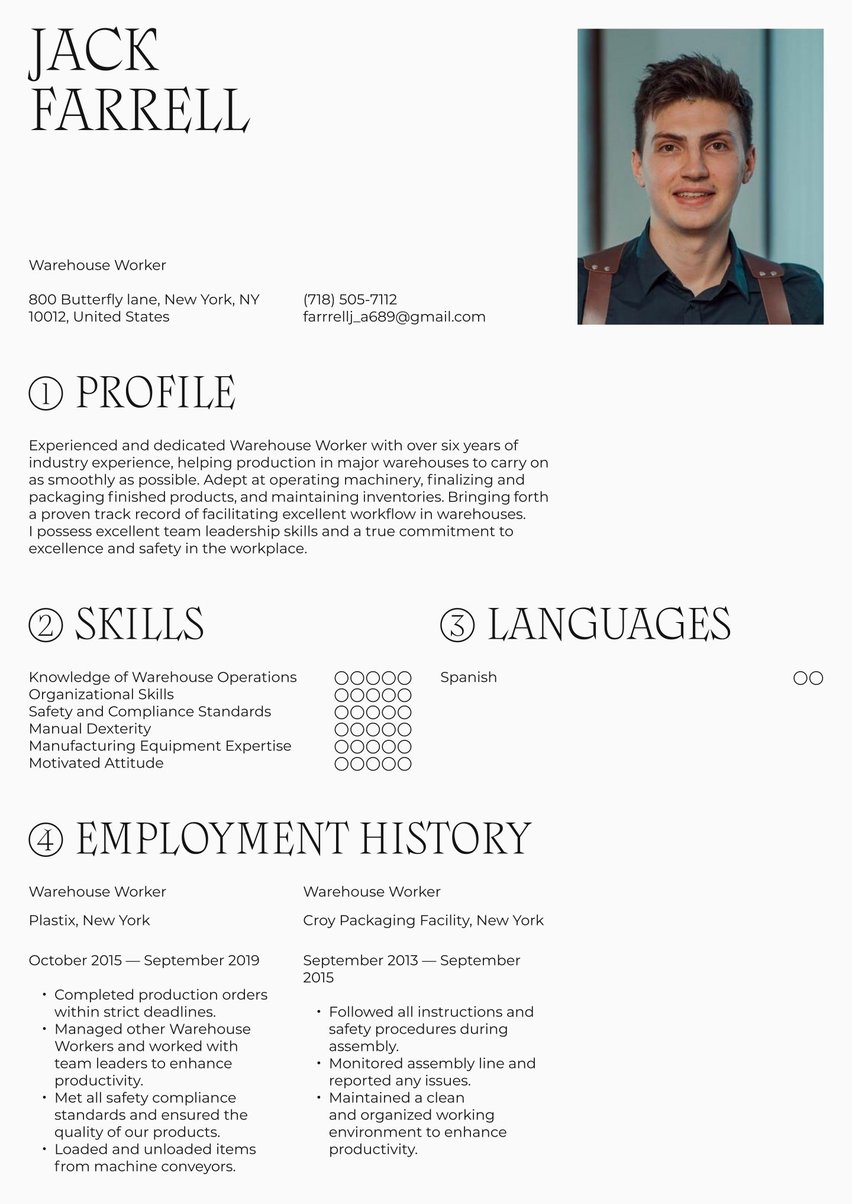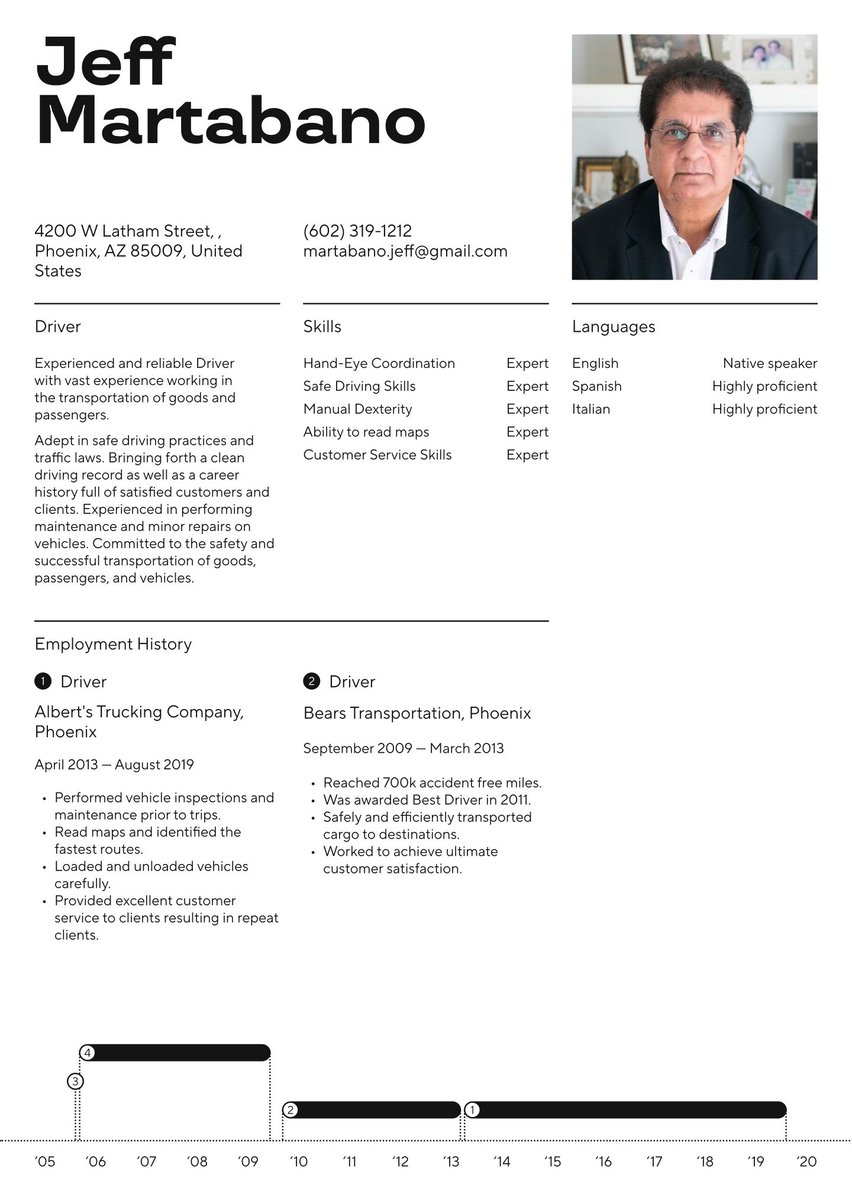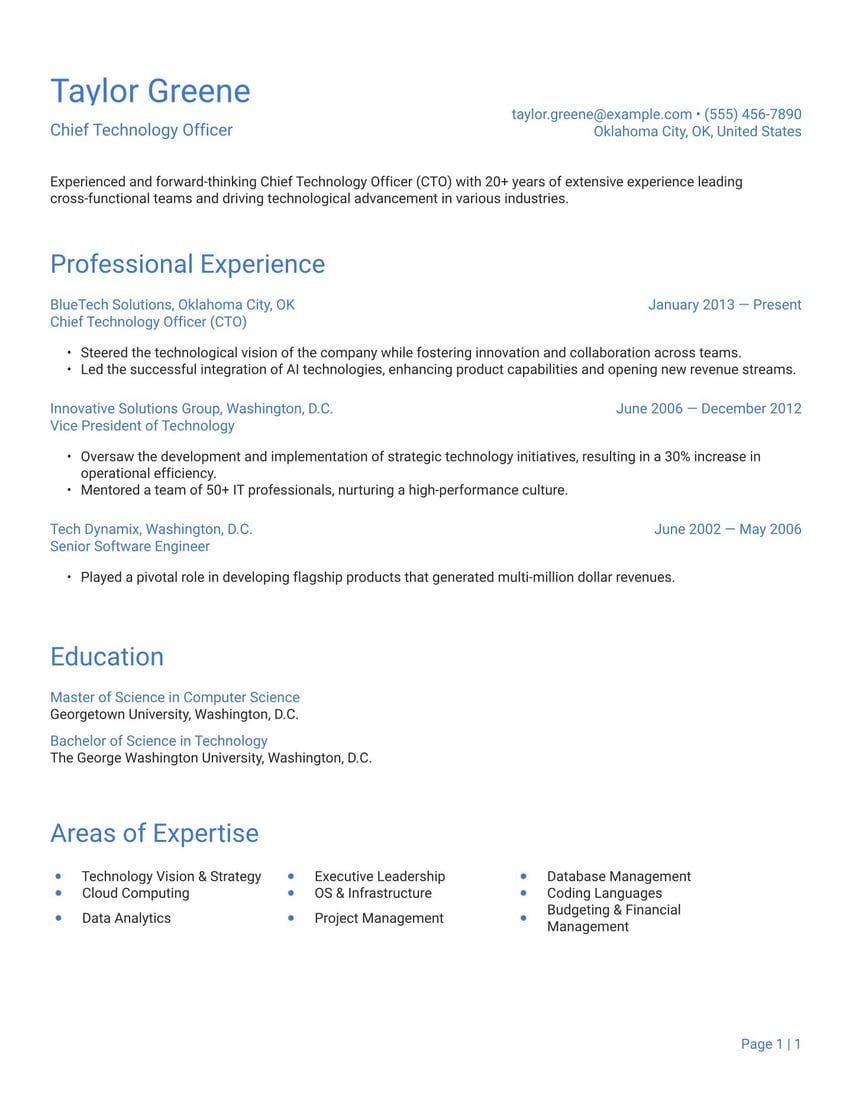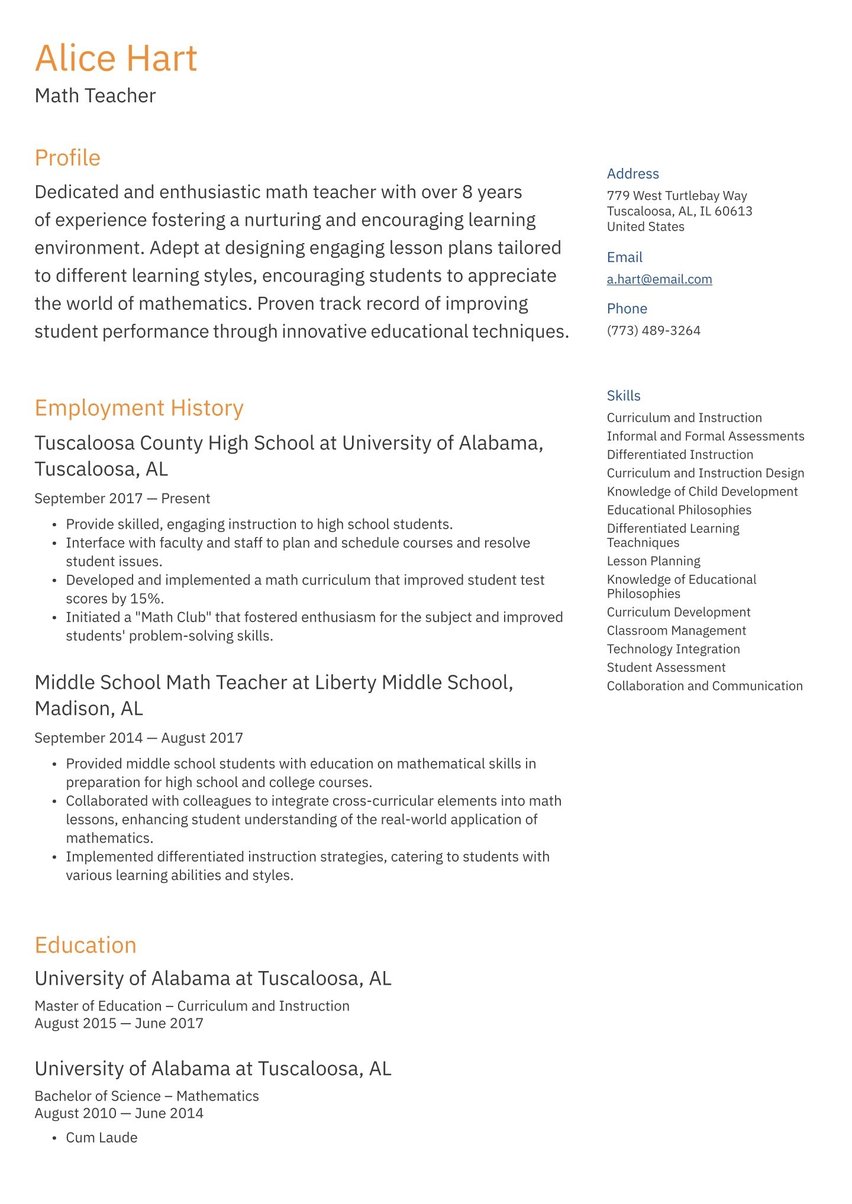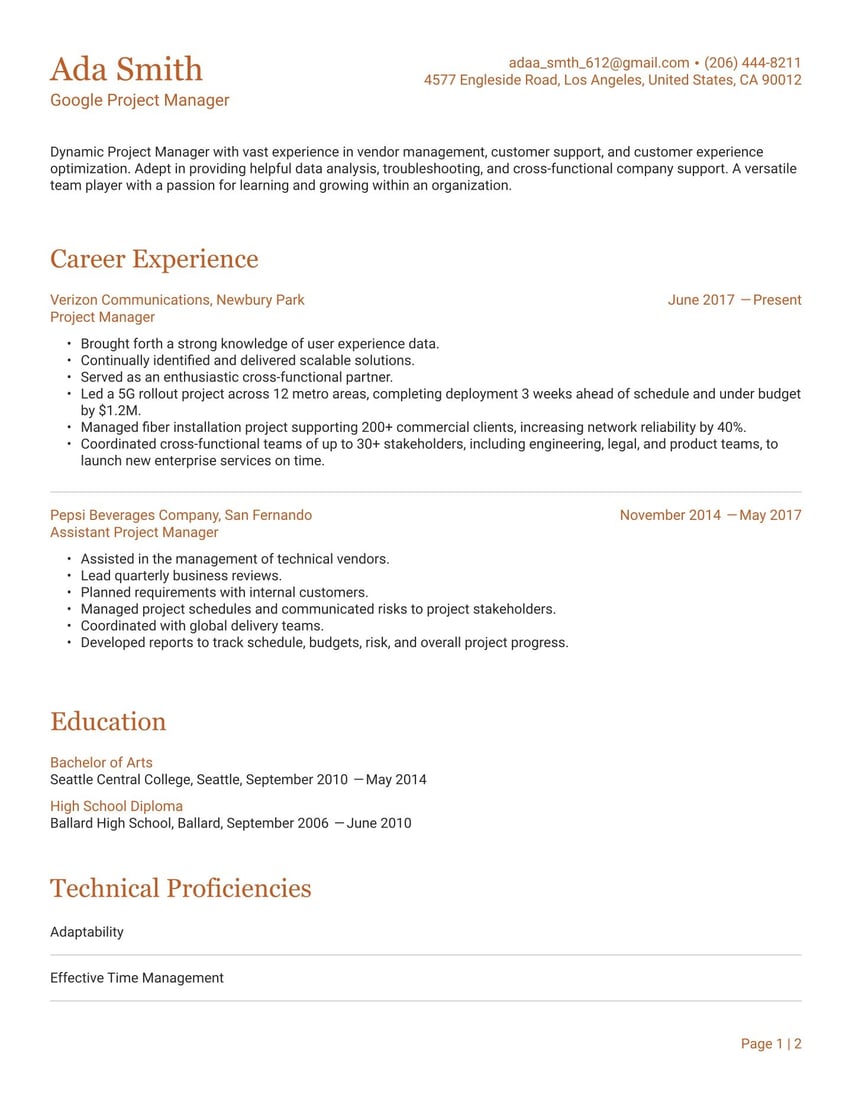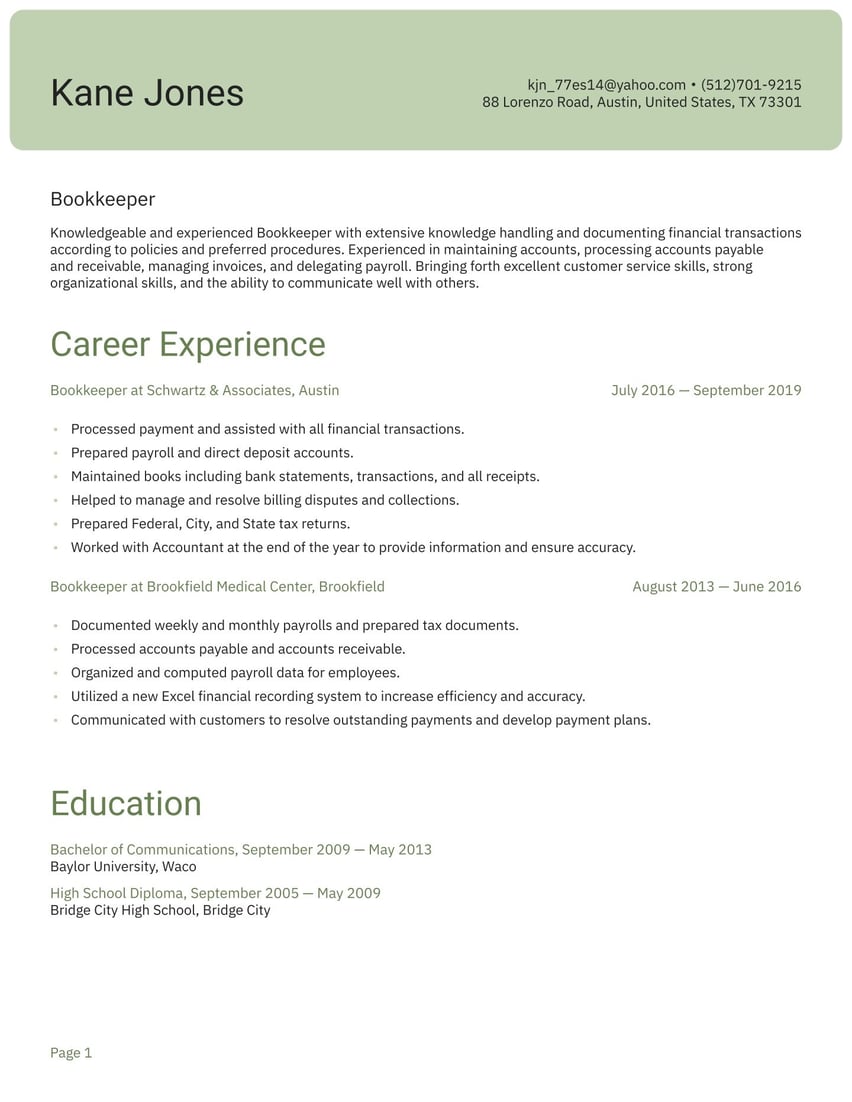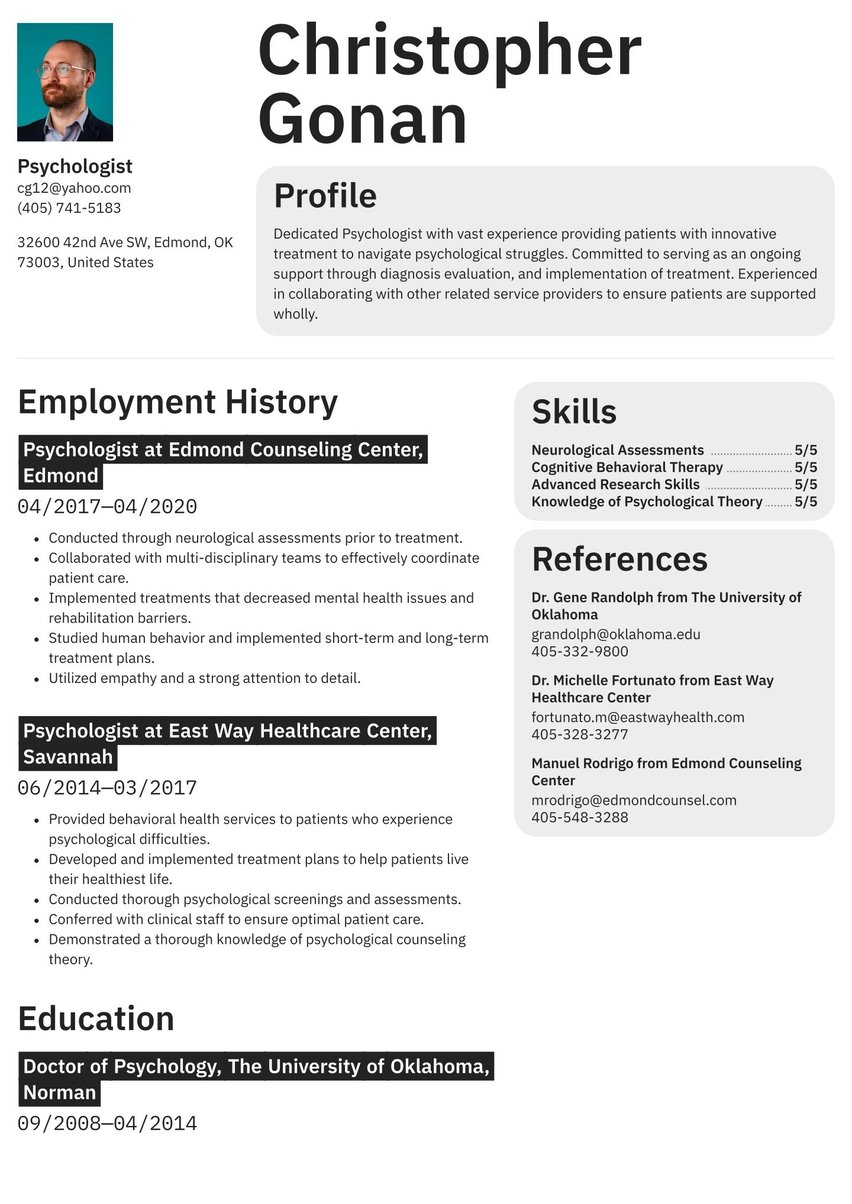Customer-focused travel agent with eight years of experience in coordinating domestic and international travel for individuals, families, and groups. Strong negotiation skills, able to secure discounts from airlines, hotels, and rental car companies. Excel in fast-paced environments, managing multiple customers simultaneously and consistently achieving high levels of satisfaction.
07/2018 - present, Travel Agent, Ed's Travel Emporium, Boulder, CO
- Improved customer satisfaction by 15% by swiftly resolving issues and creating unique travel packages.
- Boosted revenue by 50% by implementing effective marketing to attract new customers for business and personal travel.
- Partnered with airlines, hotels, and tour operators to negotiate favorable pricing and packages for domestic and international travel.
- Supervised team of six, providing mentoring on customer relationship management, travel planning, and booking software.
01/2015 - 06/2018, Travel Agent, Travel International, Boulder, CO
- Booked hotels, flights, transportation, and activities to customers traveling in the US and abroad.
- Researched prices and negotiated with vendors to secure best options to drive sales and maintain profitability.
- Assisted customers in planning multi-city and multi-country trips, including advising on visa requirements.
09/2011 - 06/2015, Bachelor of Arts in Hospitality Management, University of Colorado, Boulder, CO
- Customer Service
- International & Domestic Travel
- Hotel & Airline Bookings
- Ground Transportation
- Itinerary Preparation
- Price Negotiation
- Communication Skills
- Customer Loyalty
- Vendor/Partner Relations
- Custom Booking Software
Travel agents don’t simply plan trips for customers. From designing fairy-tale honeymoons to organizing awesome interrailing expeditions, you’re in the business of making travel dreams come true. Armed with the perfect cocktail of creativity, time management, and a “can do” attitude, it’s your job to create experiences people will remember for a lifetime.
Travel Agent resume examples by experience level
If you’re a travel agent and you’re looking to land your next job, you need to show the hiring manager that you have what it takes. Here at Resume.io, we have everything you need to succeed. We’ve got a load of expert-backed resources, resume examples for 350+ professions, and accompanying guides. In this guide, with an associated travel agent resume example, we will be covering:
- What a travel agent does and the market outlook
- How to write a travel agent resume (with a resume sample)
- The best format for a travel agent resume
- Advice on each section of your resume (summary, work history, education, skills)
- Professional resume layout and design hints
What does a travel agent do?
Put simply, a travel agent helps customers to plan trips. That involves arranging schedules, booking flights, finding and booking accommodation, planning excursions, and offering extras, such as travel insurance. However, as we have already discussed, being a pro travel agent is really about helping people realize their travel dreams.
The future is bright for travel agents!
Thinking of becoming a travel agent? Now is the perfect time to dip your toes into this pool. According to the US Bureau of Labor Statistics, the job outlook for travel agents is set to grow by 20% between 2021 and 2031. That is “much faster than average”.
As a travel agent, you may choose to specialize in a particular type of trip. For example, you could work in the luxury travel industry, arranging high-budget trips for clients. On the other hand, you could work in the student sector, offering affordable trips for large groups. When you are searching for your next job, tailor your resume to the sector at hand.
How to write a travel agent resume
Ready to begin your journey? The first thing you need to do is structure your travel agent resume correctly. We’ve got you covered here. A well-written CV should contain the following core elements, in this order:
- The resume header
- The resume summary (aka profile or personal statement)
- The employment history section
- The resume skills section
- The education section
When you’re ready to put pen to paper, start by doing some research about the travel agency to which you’re applying. Find out what type of trips the business offers, who their ideal client is, and the selling techniques they use. The more you know about the company, the better you can tailor your travel agent resume to its requirements.
As a travel agent, you will be well-versed in working one-on-one with customers. While your chatty, friendly nature is a real talent, you need to make sure your resume is formal. Adopt a professional tone when you are working on your application. That way, you can show the hiring manager that you will fit into the workplace culture of the agency.
Editing is your best friend here. When you’re writing your travel agency resume, you might have a whole load that you want to say. However, the hiring manager has a mere matter of seconds to review your resume. With that in mind, keeping things brief and easy to digest is a must. Once you have written your first draft, go back and edit your application.
Are you new to the world of resume writing? Don’t worry, we have everything you need to succeed. Take a look at some of our related resume samples and guides here:
- Sales Assistant resume sample
- Car Sales resume sample
- Field Sales Professional resume sample
- Sales Associate resume sample
- Telemarketer resume sample
- Sales resume sample
- Account Manager resume sample
- Sales Representative resume sample
- Sales Manager resume sample
- National Sales Controller resume sample
Choosing the best resume format for a travel agent
The way you structure your travel agent resume can make or break your next big application. As a general rule, you should choose a reverse chronological resume format. This is what the hiring manager will expect to see so it tends to work well, in most cases. Start with your most recent accolades at the top of the page and work your way back.
If you are changing careers or you lack experience, you could consider a functional resume format instead. This approach highlights your skills and talents above your experience. If you’re not sure where to start, check out our formatting guide now.
Resume summary example
Your resume summary is a freeform paragraph that sits at the top of the page. In short, this is two to four lines about you and your experience. Since you don’t have a lot of space to play with here, you should choose your words wisely. Consider what your main talents are and how you can demonstrate them. If you want to stand out from the crowd, it’s also smart to quantify your feats with either statistics or numbers. Struggling with a case of writer’s block? Take a look at our summary example for some inspiration.
Customer-focused travel agent with eight years of experience in coordinating domestic and international travel for individuals, families, and groups. Strong negotiation skills, able to secure discounts from airlines, hotels, and rental car companies. Excel in fast-paced environments, managing multiple customers simultaneously and consistently achieving high levels of satisfaction.
Employment history sample
Having a proven track record of success is a surefire way to turn the hiring manager’s head. Start by listing your previous positions in reverse chronological order. At the top of each one, you should include the company name, your position, and your employment dates. Below that, you can use bullet points to list your most impressive duties and achievements. Whenever possible, add evidence to each of the points.
Travel Agent, Ed's Travel Emporium, Boulder, CO
July 2018 - Present
- Improved customer satisfaction by 15% by swiftly resolving issues and creating unique travel packages.
- Boosted revenue by 50% by implementing effective marketing to attract new customers for business and personal travel.
- Partnered with airlines, hotels, and tour operators to negotiate favorable pricing and packages for domestic and international travel.
- Supervised team of six, providing mentoring on customer relationship management, travel planning, and booking software.
Travel Agent, Travel International, Boulder, CO
January 2015 - June 2018
- Booked hotels, flights, transportation, and activities to customers traveling in the US and abroad.
- Researched prices and negotiated with vendors to secure best options to drive sales and maintain profitability.
- Assisted customers in planning multi-city and multi-country trips, including advising on visa requirements.
Resume skills example
It takes a broad range of skills to make it as a travel agent. But you know that already. When you’re filling out your skills section, make sure you include both hard and soft skills. Hard skills may include “administration” and “planning excursions,” while soft skills could be “people skills,” “communication,” and “time management.” Get the balance just right.
See our resume sample:
- Customer Service
- International & Domestic Travel
- Hotel & Airline Bookings
- Ground Transportation
- Itinerary Preparation
- Price Negotiation
- Communication Skills
- Customer Loyalty
- Vendor/Partner Relations
- Custom Booking Software
Travel agent resume education example
The entry-level education requirement for a travel agent role is a high school diploma or an equivalent qualification. Of course, if you have a college degree, that is always a plus. You can expect to make an average of $43,810 per year or around $21.06 per hour. List your education by including the institute or school, your qualification, the dates, and the grade you received.
Bachelor of Arts in Hospitality Management, University of Colorado, Boulder, CO
September 2011 - June 2015
Resume layout and design
By this point, you should know what you’re going to include on your travel agent resume. However, there’s one last thing you need to consider: how it looks. You want to grab the hiring manager’s attention in seconds (and keep it!). Here are some design tips to help:
- Space your resume out. Don’t try to cram a load of information onto the page. If your travel agent resume looks “busy,” it may put the hiring manager off.
- Use a simplistic design. Don’t be tempted to go too wild when it comes to the design of your resume. You need to make sure that it has a classic and formal look.
- Choose a legible font. The number one thing to prioritize when writing your resume is whether the hiring manager can read it. Choose a clear, legible typeface.
Travel Agent text-only resume example
Profile
Customer-focused travel agent with eight years of experience in coordinating domestic and international travel for individuals, families, and groups. Strong negotiation skills, able to secure discounts from airlines, hotels, and rental car companies. Excel in fast-paced environments, managing multiple customers simultaneously and consistently achieving high levels of satisfaction.
Employment history
Travel Agent, Ed's Travel Emporium, Boulder, CO
July 2018 - Present
- Improved customer satisfaction by 15% by swiftly resolving issues and creating unique travel packages.
- Boosted revenue by 50% by implementing effective marketing to attract new customers for business and personal travel.
- Partnered with airlines, hotels, and tour operators to negotiate favorable pricing and packages for domestic and international travel.
- Supervised team of six, providing mentoring on customer relationship management, travel planning, and booking software.
Travel Agent, Travel International, Boulder, CO
January 2015 - June 2018
- Booked hotels, flights, transportation, and activities to customers traveling in the US and abroad.
- Researched prices and negotiated with vendors to secure best options to drive sales and maintain profitability.
- Assisted customers in planning multi-city and multi-country trips, including advising on visa requirements.
Skills
- Customer Service
- International & Domestic Travel
- Hotel & Airline Bookings
- Ground Transportation
- Itinerary Preparation
- Price Negotiation
- Communication Skills
- Customer Loyalty
- Vendor/Partner Relations
- Custom Booking Software
Education
Bachelor of Arts in Hospitality Management, University of Colorado, Boulder, CO
September 2011 - June 2015
Key takeaways for a travel agent resume
- The travel agent business is booming. That means that now is the perfect time to enter this sector or further your existing career.
- Your resume should showcase your unique skill set and demonstrate how you apply each of your talents.
- Make sure you include a selection of hard and soft skills in this document.
For the best results, choose a classic and formal design. If you want to take all of the hassle out of creating your resume, use one of our resume templates.


.jpg)

.jpg)







